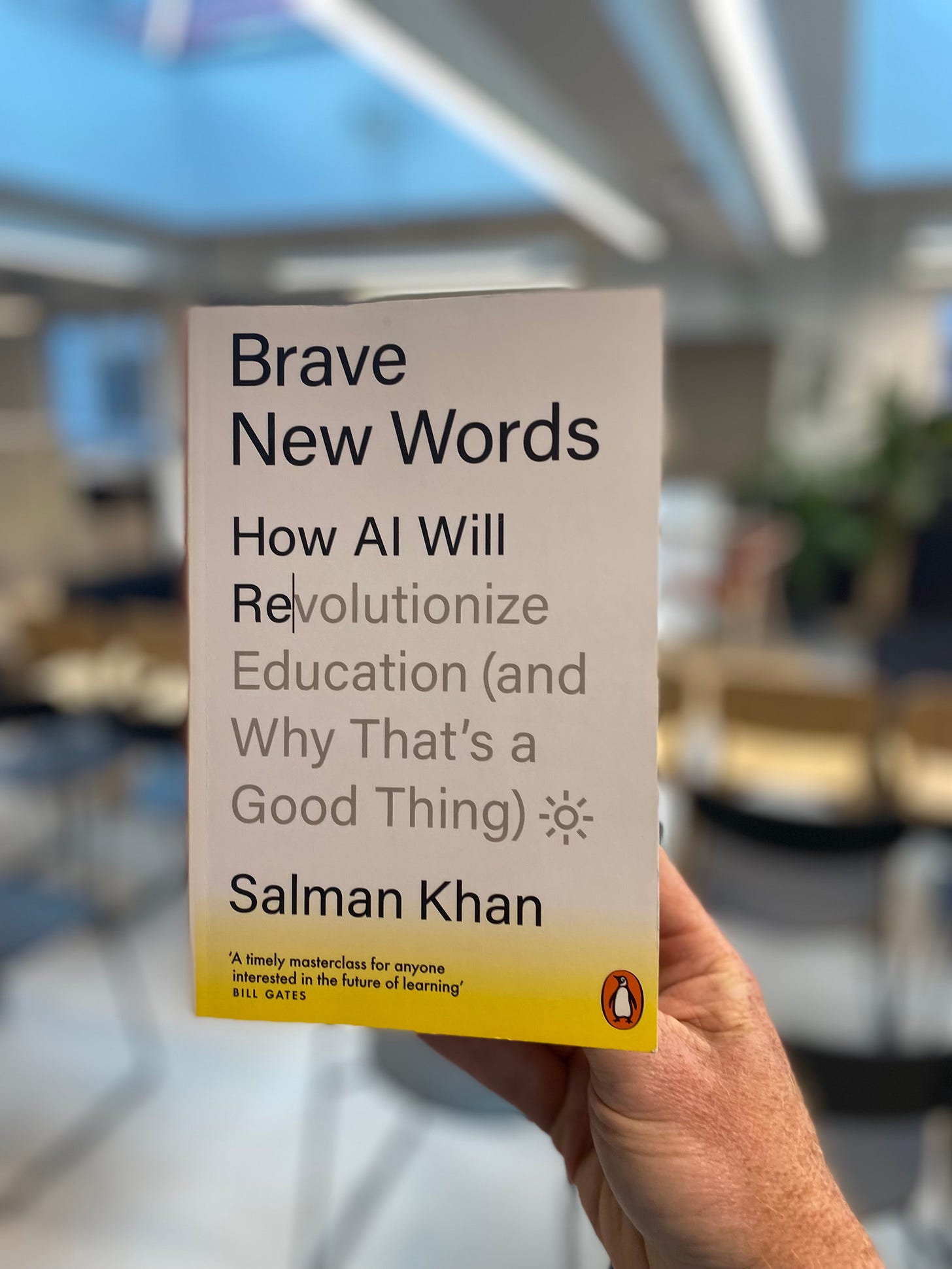- Superfly - Get Good with AI
- Posts
- How AI could save (not destroy) education
How AI could save (not destroy) education
The best book I've read on the future of education in almost a decade + a new 'Get Good with AI course'
This is the best book I've read on the future of education since 'Creative Schools' by the late, great Ken Robinson at Rebel Book Club in 2016.
📚 In 'Brave New Words', Sal Khan explores how artificial intelligence can revolutionise learning for the better, making education more personalised, accessible, and effective for many, especially the less privileged.

Why should we pay attention? Because Salman Khan has built one of the most successful edtech orgs in the world: The Khan Academy, a non-profit created in 2006 to provide "a free, world-class education for anyone, anywhere" (mainly via youtube videos). This has implications not just for schools, but all forms of learning, recruitment and the way we work.
Khan envisions - and is building - a future where AI-driven tools provide personalised learning experiences, adapt to students' unique needs, and offer real-time feedback, giving teachers much more detailed and accurate oversight of each students learning journey (the AI is both a teaching assistant and a student assistant).
He focuses on the effectiveness of one-on-one tutoring, drawing upon Benjamin Bloom's 1984 study that revealed students receiving individualised tutoring performed two standard deviations better than those in traditional classroom settings; a phenomenon termed the "2-sigma problem." This translates to tutored students outperforming 98% of their peers in conventional classrooms.
Despite its proven efficacy, personalised tutoring has been inaccessible to many due to cost. Khan argues that AI can bridge this gap by providing scalable, individualised instruction. AI-powered tools, like Khan Academy's Khanmigo, can emulate human tutors by adapting to each student's learning pace, offering tailored feedback, and employing Socratic questioning to deepen understanding.
By using AI, education can shift from a one-size-fits-all model to a more personalised approach, ensuring that each student receives the support they need. This democratisation of high-quality tutoring, Khan argues, has the potential to transform educational outcomes on a global scale.
Khan also addresses potential challenges, such as data privacy and the digital divide, emphasising the importance of ethical implementation.
Top tips/actions from book:
- Explore EdTech Tools: Familiarise yourself with AI-driven educational platforms and their capabilities.
- Advocate for Equity: Support initiatives that aim to provide equal access to technology in education.
- Engage in Policy Discussions: Participate in conversations about the ethical use of AI in schools.
- Lifelong Learning: Embrace continuous learning to adapt to the evolving educational landscape.
- Collaborate: Encourage partnerships between educators, technologists, and communities to co-create effective AI solutions.
Watch: Salmam Khan at TED 2023